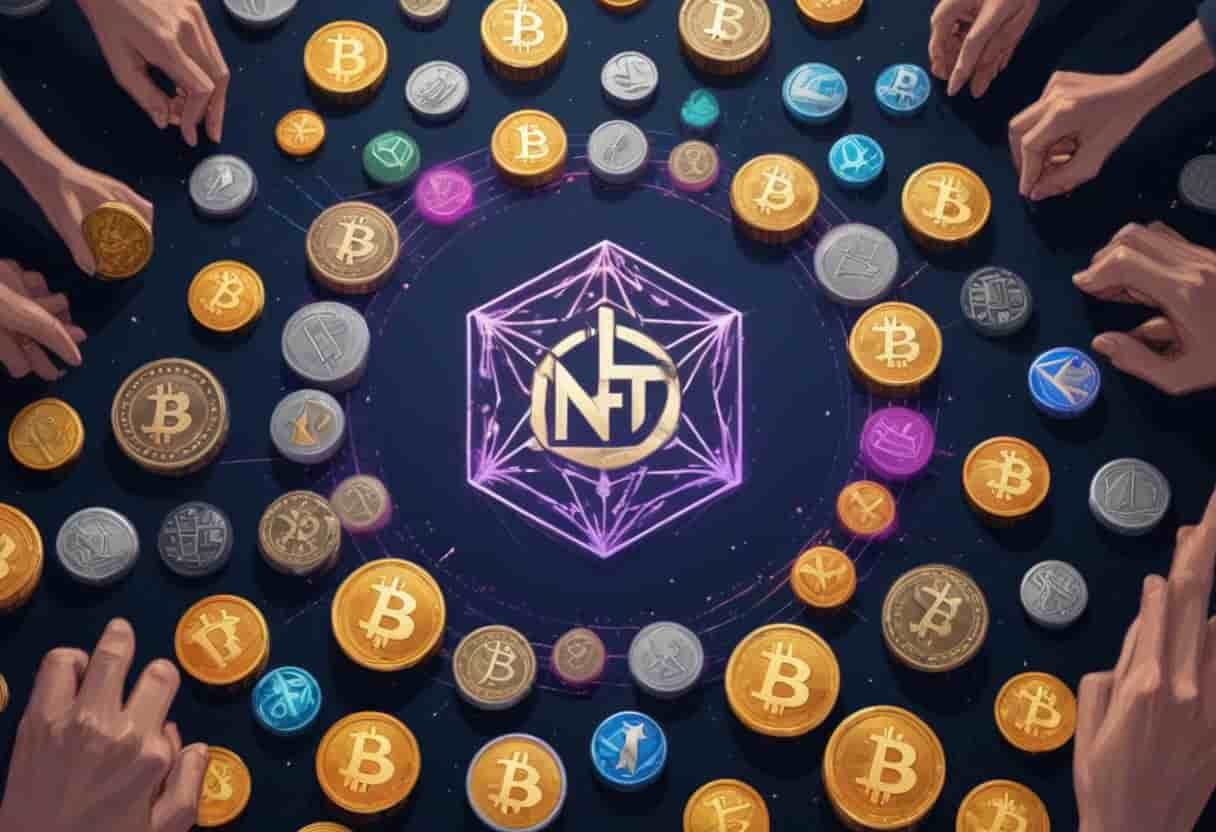


Discover how integrating blockchain technology can drive success for an OpenSea clone.
Non-fungible tokens (NFTs) have emerged as transformative digital assets, revolutionizing the way we perceive ownership and value in the digital economy. Unlike cryptocurrencies such as Bitcoin, which are interchangeable, NFTs represent unique items or assets, from digital art to virtual real estate, each with distinct value and attributes. The NFT marketplace has witnessed explosive growth, with platforms like OpenSea leading the charge in facilitating transactions and fostering a dynamic digital economy.
We delve into how an OpenSea clone can harness blockchain technology to enhance its market success. By leveraging the core strengths of blockchain such as security, transparency, and decentralization an OpenSea clone can not only differentiate itself in a crowded marketplace but also deliver superior value to its users.
Definition and Basics
Blockchain technology is essentially a decentralized digital ledger that records transactions across a network of computers. Each transaction, or “block,” is linked to the previous one, forming a chain. This structure ensures that once a block is added to the chain, it cannot be altered without altering all subsequent blocks, making the system secure and tamper-proof. Key components include nodes (individual computers on the network), consensus mechanisms (protocols for validating transactions), and cryptographic algorithms that ensure data integrity.
Relevance to NFTs
Blockchain serves as the backbone of NFTs by providing a secure and transparent framework for creating, buying, and selling these digital assets. Each NFT is recorded on the blockchain, which verifies its authenticity and ownership. This immutability and transparency are crucial for maintaining trust and value in digital transactions, making blockchain indispensable to the NFT ecosystem.
Core Functionalities
An OpenSea clone typically includes features such as:
Blockchain Integration
Enhanced Security
Blockchain’s cryptographic techniques safeguard against fraud and unauthorized alterations. Unlike traditional systems, where data can be compromised, blockchain’s decentralized nature makes it significantly more secure. For example, while traditional digital marketplaces have faced numerous security breaches, platforms utilizing blockchain technology report lower instances of fraud due to its robust security measures.
Transparency and Immutability
Blockchain records all transactions on a public ledger, which fosters transparency and accountability. Every transaction is visible and cannot be altered retrospectively, building trust among users. Case studies have shown that platforms with transparent, immutable ledgers enjoy higher levels of user trust and engagement compared to those lacking such features.
Decentralization Benefits
A decentralized approach reduces reliance on intermediaries, which can lower transaction fees and speed up processing times. Blockchain-based platforms often have lower fees compared to traditional systems due to the elimination of middlemen. Furthermore, decentralized networks can handle transactions more swiftly, enhancing the overall user experience.
Market Differentiation
Incorporating advanced blockchain features, such as unique consensus mechanisms or custom smart contracts, can set an OpenSea clone apart from competitors. Offering innovative functionalities that leverage blockchain can attract users seeking enhanced security and efficiency.
User Experience
Blockchain technology improves user experience by facilitating faster transactions, reducing costs, and providing robust security measures. Data shows that platforms utilizing blockchain often have higher user satisfaction rates due to these benefits, leading to greater engagement and retention.
Leveraging blockchain technology is crucial for the success of an OpenSea clone. Blockchain enhances security, transparency, and decentralization, providing significant advantages over traditional systems. By incorporating these features, an OpenSea clone can differentiate itself in the competitive NFT marketplace.
Embracing blockchain technology not only positions an OpenSea clone for immediate success but also lays a foundation for long-term growth and innovation. As the NFT space continues to evolve, leveraging blockchain will be key to staying ahead of the curve and achieving sustained competitive advantage.
